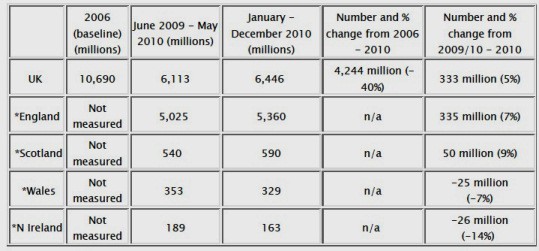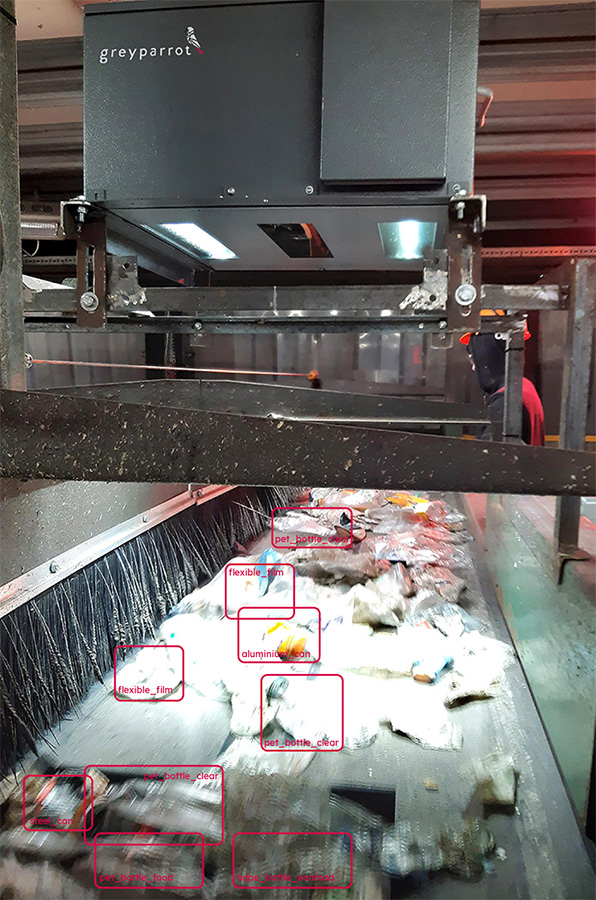The figures, compiled by the Waste & Resources Action Programme, fail to include data from one large retailer, Morrisons, for confidentiality reasons,and have also been produced on different sets of 12 month periods causing some difficulties in comparison. As a result, WRAP has now decided to opt for January to December recording, saying this is to provide greater clarity.
Single-use
The data shows that in January to December 2010, 6.4 billion single-use carrier bags were used in the UK. WRAP notes that with 10.7 billion single-use carrier bags used in 2006, the 2010 figure represents a reduction of 40% when compared to 2006. But on the downside, when the January to December 2010 figures are compared with previous 12 month data covering June 2009 to May 2010, the picture is not so good.
In the June 2009 to May 2010 12 months 6.1 billion bags were used, equating to a 5% rise in single-bag usage.
Retailers were at pains today to point out that this increase was not all doom and gloom for the sector in its bid to reduce single-use bag numbers.
The British Retail Consortium said the figures were encouraging in the context of rising sales and changing shopping habits. It also pointed out that a total of 37% fewer bags of all types including cotton, jute and bags for life were handed out in 2010 than in 2006. And, it noted that sales volumes rose by 8% over the same period.
The BRC added: A small increase in the number of bags given out in 2010 compared with a previous 12 month period, June 2009-May 2010, should not be allowed to overshadow the major progress made by the sector. The average monthly usage of thin carrier bags has risen by just 0.4 of a bag per person over that time.
And, the BRC commented that the total weight of thin plastic bags used has almost halved since 2006 and the amount of new material being used is down 61% with bag makers using an increasing amount of recycled plastic in the manufacturing process.The population of the UK has also risen by about 2 million since 2006.
Wales
The figures break down the usage in the different UK nations and show that people in Wales reduced single use carrier bag use by 7% over 2010 compared to the 12 months to May 2010. However, other comparisons are not available as data was not previously collected so any truer measure of Wales performance over more years is not available.
Nevertheless, Wales environment minister, John Griffiths claimed that the significant rise in carrier bag use in England and Scotland over the last year proves that that a mandatory charge for carrier bags, like the one being introduced in Wales in October 2011, is the best way to drive down carrier bag use, and that voluntary agreements with retailers will not take us far enough.
England
A carrier bag charge is due to be introduced in Wales on 1 October. England Defra stated, in its June 2011 review of waste policy, that in the light of the 2011-12 figures on the use of single-use carrier bags in England, and the results of the proposed policy in Wales, the government will decide whether and what further action might be needed.
No indication is given in the policy review whether the department was aware that WRAP was changing the year basis for its calculation of carrier bag usage figures. Consequently, if Defras comments in the review do mean that it will be waiting for January to December 2012 data before making any decisions, any policy review of carrier bag usage in England would not start until the autumn of 2013.












Subscribe for free